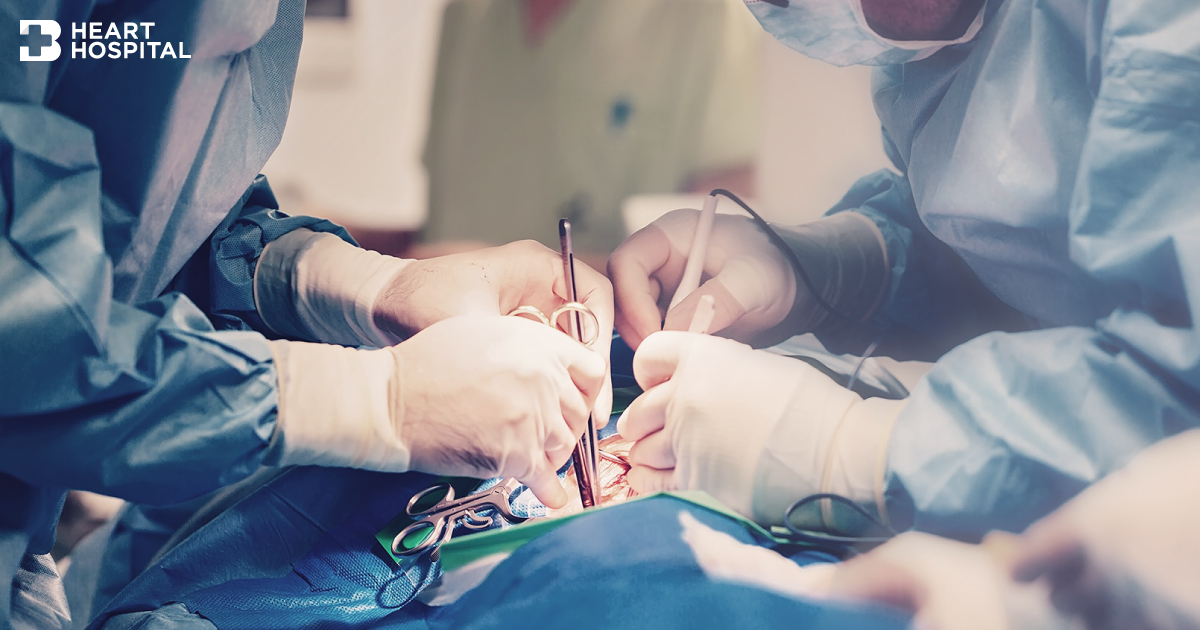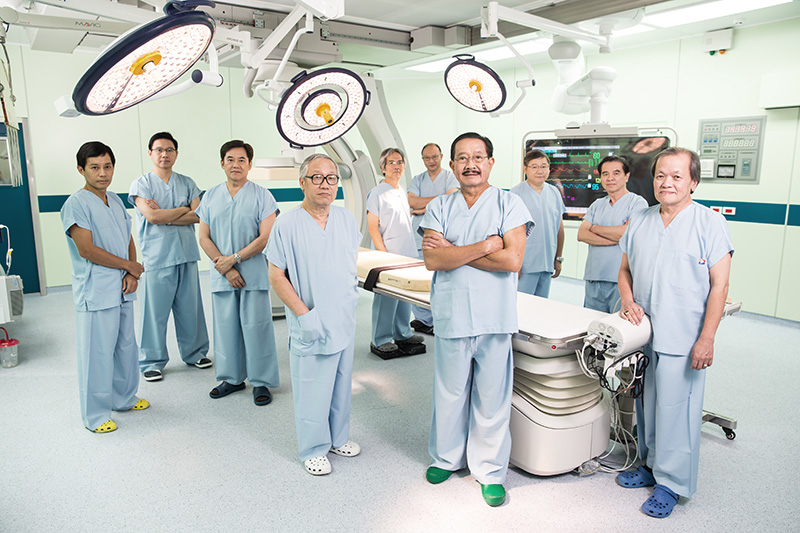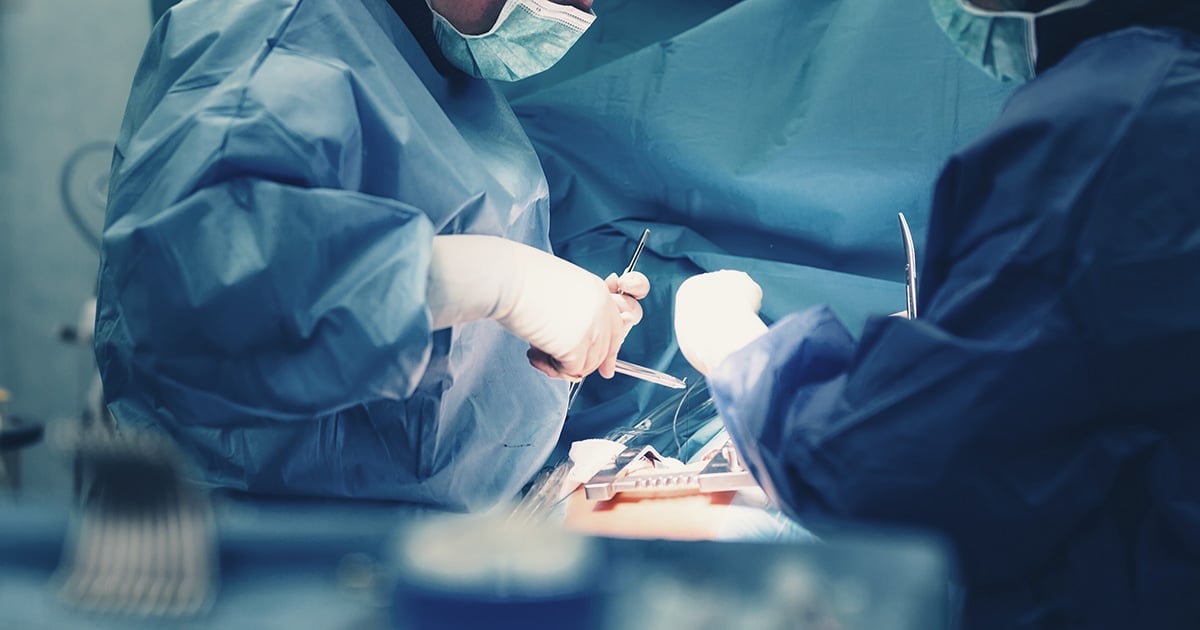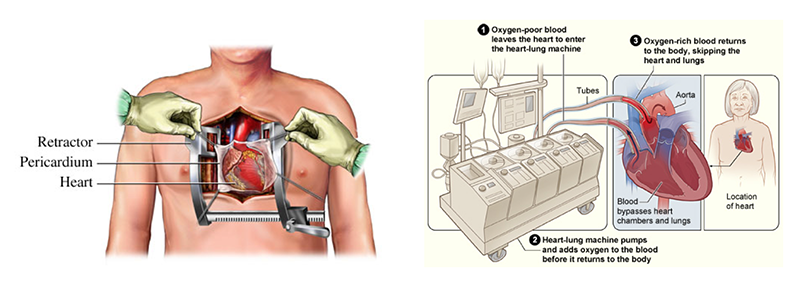Open Heart Surgery

treatment
table of contents
What is open heart surgery?
Indication for open heart surgery
How Is Open Heart Surgery Performed?
What Are the Risks of Open Heart Surgery?
How Do I Prepare for Open Heart Surgery?
What Happens After Open Heart Surgery?
What Is the Long-Term Outlook for Open Heart Surgery?
Surgical team and the new hybrid operating room at Bangkok Heart Hospital
What is open heart surgery?
Open heart surgery is the surgery where the chest is cut open and surgery is performed on the valves, arteries or muscles of the heart. To allow the surgeon to operate on a still heart the patient circulation will be bypassed to a heart-lung machine.
Open heart surgery is sometimes called traditional heart surgery. Today, many new heart procedures can be performed with only small incisions (cuts). Some procedure may not need the heart-lung machine (beating heart surgery)
Indication for open heart surgery
- Coronary artery bypass grafting (CABG) for coronary artery disease.
- Repair or replace heart valves, which allow blood to travel through the heart properly
- Repair damaged or abnormal areas of the heart
- Put in medical devices that help the heart to beat properly
- Replace a damaged heart with a donated heart (heart transplantation)
How Is Open Heart Surgery Performed?
- The patient is given general anesthesia. This ensures the patient will be asleep and pain-free through the whole surgery.
- The surgeon makes an eight to 10-inch cut in the chest.
- The surgeon cuts through all or part of the patient’s breastbone to expose the heart.
- Once the heart is visible, the patient may be connected to a heart–lung bypass machine. The machine moves blood away from the heart so that the surgeon can operate. Some newer procedures do not use this machine.
- The surgeon closes the breastbone with wire, leaving the wire inside the body.
- The original cut is stitched up.
What Are the Risks of Open Heart Surgery?
- Chest wound infection (more common in patients with obesity or diabetes, or previous surgery)
- Heart attack or stroke
- Irregular heart beat
- Lung or kidney failure
- Chest pain and low fever
- Memory loss or “fuzziness”
- Blood clot
- Blood loss
- Breathing difficulty
- Risk associate with heart-lung bypass machine
These risks are varies for individual patient. You should discuss with your surgeon in detail for your own case.
How Do I Prepare for Open Heart Surgery?
Tell your healthcare provider about any drugs you are taking, even over-the-counter medications, vitamins, and herbs. Inform them also of any illnesses, including cold, flu, or fever.
In the two weeks before the surgery, your healthcare provider may ask you to quit smoking and to stop taking blood-thinning medications (medicine to prevent blood clot formation),
The day before the surgery, you may be asked to wash yourself with a special soap. This soap is used to kill bacteria on your skin and will lessen the chance of an infection after surgery. You may also be asked not to eat or drink anything after midnight.
Your healthcare provider will give you any other detailed instructions when you arrive at the hospital for surgery.
What Happens After Open Heart Surgery?
When you wake up after surgery, you will have two to three tubes in your chest. These are to help drain fluid from the area around your heart.
- You may have intravenous (IV) tubes in you, supplying you with fluids.
- You may have a catheter (thin tube) in your bladder to remove urine.
- You will also be attached to machines that monitor your heart. Nurses will be nearby to help you if you need it.
- You will usually spend your first night in the intensive care unit (ICU). You will then be moved to a regular care room for the next three to seven days. These times may vary for each patient.
What Is the Long-Term Outlook for Open Heart Surgery?
Expect a gradual recovery. It may take up 4 to 6 weeks before you start feeling better, and up to 2-3 months to feel the full benefits of the surgery, although many patients may recover faster than this. However, the outlook is good for many or most people,
Living with proper lifestyle is very important to decrease the chance of the same disease or even other diseases to occur again in shorter period of time. This include:
- Eating a healthy diet
- Cutting back on foods high in salt, fat, and sugar
- Leading a more active lifestyle and engaging in routine exercise.
- Not smoking
- Controlling high blood pressure, high cholesterol or diabetes
Surgical team and the new hybrid operating room at Bangkok Heart Hospital



